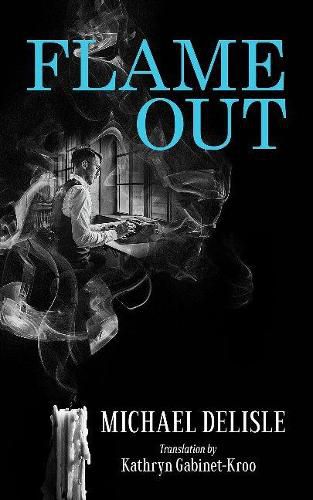Readings Newsletter
Become a Readings Member to make your shopping experience even easier.
Sign in or sign up for free!
You’re not far away from qualifying for FREE standard shipping within Australia
You’ve qualified for FREE standard shipping within Australia
The cart is loading…






When Michael Delisle was a boy growing up in Montreal’s South Shore neighbourhood of Ville Jacques-Cartier, his uncles - in other words, his father’s friends - never said gun but rather piece or rod or more metonymically, heater . In FLAME OUT, the poet remembers his father, a crook turned Charismatic Christian, the violent man who came to speak only of Jesus, the hated man whom he had no choice but to love, in spite of it all. Delisle writes that reading and writing poetry helped me stay the course . Writing was the weapon he used do deal with a childhood that was difficult, to say the least, and to combat a father that he has called his Waterloo. But this novel is more than just about a settling of accounts between a parent and his offspring; Michael Delisle manages, through his writing, to grow into a love-hate relationship without destroying the father figure. This novel is thus both highly personal and an acknowledgement of the power found in the act of writing.
$9.00 standard shipping within Australia
FREE standard shipping within Australia for orders over $100.00
Express & International shipping calculated at checkout
When Michael Delisle was a boy growing up in Montreal’s South Shore neighbourhood of Ville Jacques-Cartier, his uncles - in other words, his father’s friends - never said gun but rather piece or rod or more metonymically, heater . In FLAME OUT, the poet remembers his father, a crook turned Charismatic Christian, the violent man who came to speak only of Jesus, the hated man whom he had no choice but to love, in spite of it all. Delisle writes that reading and writing poetry helped me stay the course . Writing was the weapon he used do deal with a childhood that was difficult, to say the least, and to combat a father that he has called his Waterloo. But this novel is more than just about a settling of accounts between a parent and his offspring; Michael Delisle manages, through his writing, to grow into a love-hate relationship without destroying the father figure. This novel is thus both highly personal and an acknowledgement of the power found in the act of writing.